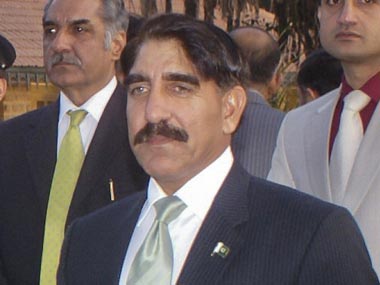New York: The news that Lt General Zaheerul Islam is replacing Ahmad Shuja Pasha, who has been at the Inter-Services Intelligence (ISI) spy agency’s helm since 2008, was met with relief in a number of US quarters. The change of guard in Pakistan made headlines in America, where the media doesn’t bat an eyelid when there are changes in the intelligence agencies of Russia, China, India or any other country for that matter. With Pasha in charge, the ISI has had a stormy relationship with the US. The Pakistani spy agency has been accused by the Obama administration of backing militants across the border in Afghanistan. Ties between Washington and Islamabad, which have been strained since the US raid that killed Osama bin Laden last year, have all but collapsed since American troops mistakenly killed 24 Pakistani troops on the Afghan border. [caption id=“attachment_240509” align=“alignright” width=“380” caption=“Lt Gen Zaheerul Islam’s appointment as ISI chief won’t change things much at the spy agency. Reuters”]  [/caption] “General Islam’s first job is likely to involve refashioning relations with Washington, which have been virtually frozen since an erroneous American attack near the border with Afghanistan in November,” said The New York Times. “The ISI chief is the second most powerful figure in the military — some would argue in the country — and General Islam is likely to play a significant role in peace talks with the Afghan Taliban, a movement the ISI has long been accused of supporting,” the paper added. ISI agents helped build up the Afghan Taliban in the 1990s, and its leaders are believed to be based in Pakistan. In fact, India’s objections to peace talks arise directly from its conviction that key Afghan Taliban groups are the creatures of Pakistan’s ISI and such connections mirror Pakistani security establishment links to the Lashkar-e-Taiba, blamed for the 2008 Mumbai atrocities and for a long history of attacks in Kashmir. Despite bad blood between Washington and Islamabad , Pakistan’s politicians will debate the broad contours of a new policy toward the US at a special joint session of Parliament set for this month. Foreign policy experts, however, expect the core elements of the relationship to be determined by army chief, General Ashfaq Parvez Kayani and General Islam, in consultation with President Asif Ali Zardari. A US official told Associated Press wire service that Islam had travelled to America during his career to attend US military sponsored training programs, and was familiar with his American counterparts. “It would not be a surprise to see a brief transition period as the new head of the ISI gets up to speed, but that shouldn’t have much impact on counter terrorism cooperation,” the official told AP. Lt Gen Islam was born into a military family and is currently the army commander in Karachi. He has also served as deputy head of the ISI agency in the past. As such, the appointment of Islam is not expected to immediately or significantly change Pakistani policy or curb cross-border terrorism against India, say experts. The ISI helped create Lashkar two decades ago to challenge Indian control in Kashmir. Pakistani officials say that after September 11, 2001 they broke their contacts with the group. This is out-and-out nonsense. Recently retired Pakistani military and intelligence officials are known to have directed the Mumbai attacks. “There is strong evidence that David Coleman Headley had an ISI handler and was an operative directed by the ISI and Lashkar during the Mumbai plot,” said ProPublica reporter Sebastian Rotella who has made the documentary A Perfect Terrorist on Headley. “Pakistan denies this, as you know. But we explore the evidence that has accumulated during the past three years. The US government has indicted Major Iqbal, Headley’s alleged intelligence handler, a strong sign that authorities believe in the ISI connection.” Despite pledges from Pakistan to dismantle military groups operating on its soil, and the arrest of a handful of its operatives, Lashkar has persisted, even flourished since the attacks on Mumbai.
But experts don’t expect the transition to significantly change Pakistani policy or curb cross-border terrorism against India.
Advertisement
End of Article


)

)
)
)
)
)
)
)
)



